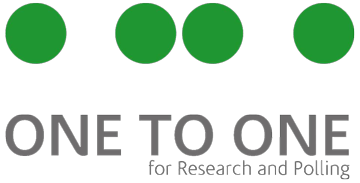Tunisians are less and less satisfied with democracy. This is what emerges overall from the results of the third wave of the Afrobarometer on “democracy and governance in Tunisia”.
This is an opinion poll conducted by the One to One for Research and Polling polling institute on a representative sample of the population of 1,200 people aged 18 and over from the 24 governorates, during the period from April 1 as of May 5, just before the municipal elections.
The proportion of Tunisians who say the country “is not a democracy” has doubled since 2015. Popular support for democracy rather than any other political system is still on the decline, falling to 46% from 71% in 2013. That said, 51% said they were against the single political party, 61% against the dictatorship and 46% against the military regime. 51% of Tunisians are “not very satisfied” or “not at all satisfied” with the functioning of democracy in their country.
The survey also reveals that Tunisians have a negative perception of the national economic situation and remain largely critical in their assessments of the government’s efforts to resolve the three priority problems (the economy, unemployment and the fight against corruption). In fact, 79% of Tunisians say that the country is headed in “the wrong direction”. 72% consider the country’s economic situation to be “rather bad” or “very bad”.
The majority of those polled support regular, free and transparent elections (64%) even if a large part showed little interest in the last municipal elections, with popular confidence in the declining electoral commission. 57% of respondents said they were “not at all interested” or “not really interested” in the last municipal elections, and 84% said that they had little or no information relating to these elections.
To comment on these results, the polling institute invited Lamia Zargouni Lassoued (former member of the ISIE), Rafik Halouani (Mourakiboun), Dalila Msaddek Ben Mbarek (Lawyer and media columnist) and Youssef Cherif (Political analyst).
Ms. Zargouni Lassoued said that the delay in the selection of outgoing members from Asia had a negative impact on the elections, especially with regard to the electoral campaign which failed to capture the Tunisians.
For his part, Rafik Halouani thinks that Asia started its activities late, the result is a campaign without flavor. Regarding the reasons for abstentionism, he considers that Tunisians, especially young people and women, no longer believe in democracy and in elections. He also spoke of the restrictions and pressures on the press and on associations, in a “very sneaky and homeopathic dose” manner.
Mr. Halouani therefore believes that people have enjoyed neither hope nor confidence. Which he says represents the failure of Asia, the state, political parties and civil society. With 20% of voters, we managed to keep the people away from public affairs, a pretty serious finding, he noted. He lambasted those who spoke of postponing the next election, saying it was a very negative sign and downright “an indecent proposal.”
Dalila Msaddek Ben Mbarek highlighted the contradiction of certain results and wondered if the Tunisians understand the definition of democracy. For her, there is a confusion between the way of governing and the regime, stressing that the Tunisians do not trust their rulers. Regarding the 22% who think that non-Muslims should not have the same rights as Muslims, she indicated that in all democracies, there are extremist groups such as the National Front which claims to be against foreigners, which which testifies to the difference of opinions. On the other hand, what is serious for her is that the Tunisian laws (Constitution and CSP) and the Tunisian judicial system establish this differentiation.
Youssef Cherif said that the Tunisian is better positioned than other countries, knowing that until 2011, we were cut off from public affairs. Regarding the unpopularity of democracy, he said that even in the United States after Trump was elected, people felt aggrieved.
Afrobarometer is an independent pan-African research network that conducts surveys of public attitudes toward democracy, governance, economic conditions, and related issues in the countries of Africa. Six rounds of surveys were conducted in 37 countries between 1999 and 2015, and the surveys under Round 7 were completed in 2018. Afrobarometer carried out face-to-face interviews in the language chosen by the respondent with representative samples national.

